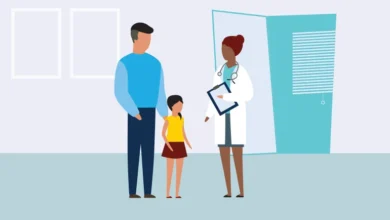What is The Connection Between HIV/AIDS and Mental Health?

Living with HIV/AIDS can be a lonely and extremely stressful experience. There is an undeniable connection between HIV/AIDS and mental health, and it’s important to understand the implications that this may have.
This article will explore how HIV/AIDS can affect mental health, as well as how it can be managed and treated. It’s important to note that there are many different factors at play here, but by the time you finish reading this article, you should have a better understanding of the connection between HIV/AIDS and mental health. So, let’s dive in! Besides, you’ll find it quite easy to buy YouTube views from YouTubestorm. They offer unbeatable services.
The Impact of HIV/AIDS on Mental Health
Living with HIV/AIDS can be incredibly challenging for those affected. Unfortunately, it doesn’t stop there—many people living with HIV/AIDS also experience a range of mental health challenges due to the physical and emotional toll of the virus.
The stress of managing symptoms, stigma, financial insecurity, and sometimes even depression can all be part of the package. Plus, in some cases, HIV/AIDS may be linked to a higher risk of developing anxiety or mood disorders like bipolar disorder.
Additionally, taking medications can come with side effects that have an impact on mental health. For instance, they may cause anxiety or depression-like symptoms—which could exacerbate existing conditions or lead to new ones.
These added concerns are why it’s so important to take extra care when it comes to your mental health if you are living with HIV/AIDS. This means talking about how you’re feeling with your healthcare provider and making sure that any medications you take support both your physical and mental wellbeing.
The Link Between HIV/AIDS and Stigma
When it comes to HIV/AIDS, it’s important to look at the link between this health condition and mental health. Current research suggests that people living with HIV/AIDS (PLWHA) are more likely to experience anxiety, depression, and posttraumatic stress disorder (PTSD).
A key factor contributing to this is stigma—the negative attitudes and judgments that exist toward PLWHA or any other marginalized group. Stigma can lead to feelings of shame and isolation, making it harder for those affected by HIV/AIDS to seek help and support, exacerbating mental health conditions.
Stigma can also include fear of discrimination at work or school—even from family members who aren’t educated about HIV/AIDS. To combat this, PLWHA need accurate, accessible information about their condition, as well as the support of organizations dedicated to fighting the discrimination they face on a daily basis.
Understanding the Statistics Around HIV/AIDS and Mental Health
When it comes to HIV/AIDS and mental health, the stats can be eye-opening. Studies have found that people living with HIV/AIDS are significantly more likely to experience mental health issues — such as depression, anxiety, post-traumatic stress disorder, and substance abuse or addiction — than people without HIV/AIDS.
What’s more, mental health issues are reported to be more severe among those living with HIV/ AIDS than in the general population. For example:
- According to one study, 51.5% of people living with HIV/AIDS experience symptoms of a psychiatric disorder in their lifetime compared to 6.8% in the general population.
- Another study found that 71% of people living with HIV have experienced symptoms of depression, compared with only 11% in the general population.
- A third study found that 35% of people living with HIV suffer from PTSD compared to 9%-11% reported in the general population.
These findings underscore the need for mental health services within the HIV community and suggest that successful care for those living with HIV must also include understanding the connection between these two conditions and providing access to appropriate treatments for both physical and psychological problems.
Effective Treatments for Mental Health Conditions Related to HIV/AIDS
When it comes to treating mental health conditions related to HIV/AIDS, the same rules apply. It’s important to have a comprehensive approach that includes psychological and behavioral interventions as well as medication. It’s also important to have support from family and friends, especially those living with HIV/AIDS.
Cognitive-behavioral therapy (CBT)
One of the most commonly used forms of therapy when it comes to HIV/AIDS is cognitive-behavioral therapy (CBT). This type of psychotherapy focuses on identifying and changing unhelpful or harmful thoughts and behaviors. In the context of HIV/AIDS, CBT can help individuals cope with the stigma they may be facing as well as other emotional issues associated with having the virus.
Medication
While there is no medication specifically developed for mental health conditions related to HIV/AIDS, there are a number of medications used for treating depression and anxiety that can be useful for people living with HIV/AIDS. These include selective serotonin reuptake inhibitors (SSRIs), serotonin-norepinephrine reuptake inhibitors (SNRIs), atypical antipsychotics, and tricyclic antidepressants.
It’s important to work with your healthcare provider in order to find the best medication for you, as not all medications work for everyone in the same way. That said, it’s also important to remember that there are other treatments available besides just medications — such as lifestyle changes, relaxation techniques, exercise, diet changes and more — that can be very helpful in managing mental health issues associated with having HIV/ AIDS.
Conclusion
Although we still do not understand the full extent of the relationship between HIV/AIDS and mental health, it is clear that the impact of HIV/AIDS on mental health cannot be understated. A myriad of mental health issues can arise from HIV/AIDS, including depression, anxiety, and post-traumatic stress disorder. To prevent and address these mental health problems, it is important to provide adequate access to mental health services and support for those living with HIV/AIDS. Additionally, health care providers should work to reduce stigma and provide education on mental health, HIV/AIDS, and the connection between them.




